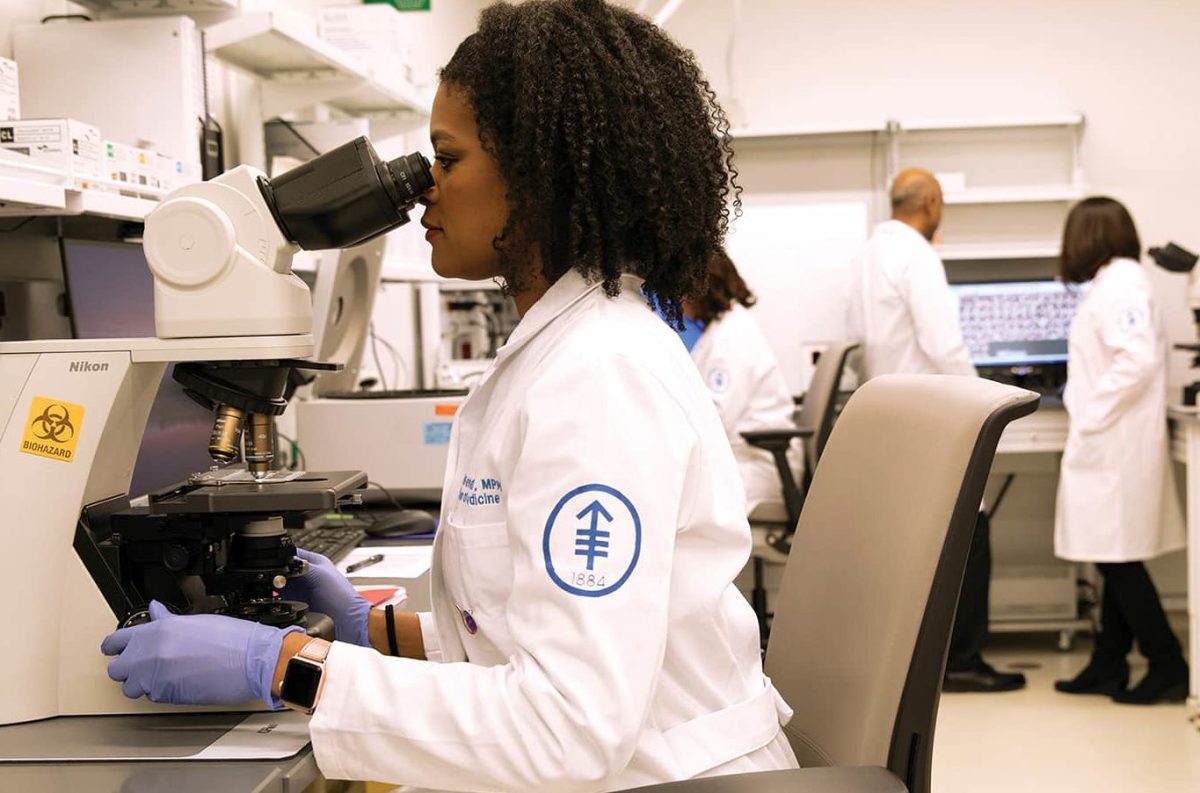Between 2012 and 2016, there were 13,064 new cases of female breast cancer in Nassau and Suffolk counties, according to the U.S. Centers for Disease Control and Prevention.
In response, New York State and Long Island healthcare systems continue to raise the bar in care and treatment for patients facing a breast cancer diagnosis, enhancing their approach from an emotional, physical, and physiological perspective and making it more accessible overall. To date, most healthcare systems have embraced a multidisciplinary approach to treating breast cancer, as well as innovative practices to improve their patients’ outcomes.
“It’s easier to share information and sharing information leads to more consistency and higher quality care,” says Dr. Brian O’Hea, director of the Carol M. Baldwin Breast Care Center in Stony Brook.
As an academic medical center, Stony Brook has access to the most current clinical trials, in addition to standard of care, he says.
“We also have a radiation oncology team looking for ways to treat patients successfully with less radiation treatments,” he says, noting that the goal is “patient-centered and patient-focused care.”
Dr. O’Hea was the first fellowship-trained breast surgeon on Long Island.
“Breast cancer surgery was [initially] mixed in with hernia and gall bladder surgery,” he says. “The advent of breast fellowships and specially trained breast surgeons trained on the technical aspects of breast cancer surgery, and also including adjuvant therapies, was a huge innovation for women.”
Stony Brook was also the first in New York State to receive accreditation from the National Accreditation Program for Breast Centers (NAPBC), he notes.
Going forward, Stony Brook remains committed to research, for example, “looking for better imaging of the armpit lymph nodes to see whether there is cancer or not using a special MRI coil,” Dr. O’Hea says.
The center isn’t alone in its innovation. South Nassau Communities Hospital in Oceanside recently partnered with Mount Sinai to become Mount Sinai South Nassau.
“We are pleased to be the flagship hospital for Mount Sinai,” says Dr. Christine Hodyl, director of breast services at Mount Sinai South Nassau. “All of the components are here in the hospital, with less travel and having expertise in breast cancer care in a patient’s own backyard.”
Mount Sinai is embracing new approaches to breast cancer surgery, utilizing oncoplastic techniques.
“We provide the most innovative surgical techniques that have excellent cosmetic results and improve the functional quality for a patient,” Dr. Hodyl says. For example, “We are now placing implants above the muscle and we are able to do an immediate implant reconstruction at the same time as a mastectomy, leaving the muscle in place; and this leads to less pain, quicker recovery and a smaller number of surgical procedures.”
Mount Sinai is also adding genetic testing programs, genetic counselors, and nurse navigation to its protocol in order to best serve patients with breast cancer.
NYU Langone Medical Center and Winthrop-University Hospital in Mineola united several years ago to enhance their healthcare networks on Long Island.

“We are able to provide the same kind of care that is provided at NYU Langone at the Perlmutter Cancer Center on Long Island,” says Dr. Nina D’Abreo, medical director for Breast Health at Perlmutter Cancer Center at NYU Winthrop.
Perlmutter aims to improve the multidisciplinary approach to breast cancer care and breast cancer survivorship. Dr. D’Abreo chairs an annual breast health symposium committed to offering up-to-date care and the latest innovations “right from prevention to survival,” she says. This includes everything from education and screening to social work and navigation to research and advanced treatments.
Perlmutter has dedicated breast surgeons who are skilled in minimally invasive techniques for breast surgery-reducing lymph node surgery, as well as Savi Scout technology, which uses radar technology to guide a surgeon and target breast tissue during a lumpectomy or biopsy procedure, Dr. D’Abreo notes. Perlmutter helped pioneer prone breast radiation therapy, which minimizes radiation damage to the lungs and the heart, she adds.
The Perlmutter Center is researching immune therapy for triple negative breast cancer, participating in local and national clinical trials, says Dr. D’Abreo.
Located in Uniondale, Memorial Sloan Kettering Nassau offers expert cancer care including chemotherapy, immunotherapy and radiation — with greater convenience for Long Islanders.
“At Memorial Sloan Kettering, we have many clinical trials that are available to patients in all stages of breast cancer treatment both up front, as well as clinical trials that have cutting-edge therapies for metastatic disease,” says Dr. Tiffany Troso-Sandoval, board-certified medical oncologist at Memorial Sloan Kettering.
“The role of DNA molecular profiling gives a more comprehensive understanding of the DNA mutations that contribute to the cancers’ function,” she says. “This test is run on every patient that has recurring or metastatic cancer. Results are placed in a databank shared with physicians and patients so if a clinical trial should arise and a patient has that same gene, our computers will pick that up immediately.”
“MSK is considered to be one of the top organizations with cutting-edge evaluation and therapy for breast cancer,” she continues. “Our facility at Nassau has full-time social work, nutrition, and physical therapy, in addition to layers of supportive nursing and multiple subspecialty positions to help support the patients physically and emotionally.”
Northwell Health is committed to assuring that “patients are better informed, more supported and experience a better journey when they’re diagnosed,” says Dr. Karen Kostroff, chief of breast surgery at Northwell Health. Northwell’s cancer centers throughout Long Island — including Huntington, Great Neck and the Imbert Cancer Center in Bay Shore — make expert care accessible and offer everything from screening and diagnosis to surgery to posttreatment, which includes a breast survivorship program.
Northwell’s multidisciplinary team allows for consultation and discussion to ascertain an appropriate plan of treatment for individual breast cancer patients. Treatment could include radiation, chemotherapy, surgery, etc., however, there is no one-size-fits-all approach, explains Dr. Kostroff, noting that genetic history and testing is also valued.
Dr. Kostroff leads a systemwide tumor board that addresses patients whose cancer is uniquely “challenging and complicated.” This forum includes 12 sites throughout the Northwell system.
“All of these physicians are learning and discussing — sharing updated information on new clinical trials and education,” she explains. “We are also involved in a tumor donation program, where instead of the tissue being discarded once it’s studied, it is given to Cold Spring Harbor Laboratories so they to can research on a fresh tumor.”
With Northwell Health’s Center for Wellness and Integrative Medicine, “patients can also focus on taking care of their bodies through programs such as reiki, Pilates, massage and more,” says Dr. Kostroff.
Catholic Health Services offers patients diagnosed with breast cancer treatment and services throughout Long Island. CHS’ six hospitals include Good Samaritan Hospital Medical Center in West Islip, Mercy Medical Center in Rockville Centre, St. Catherine of Siena Medical Center in Smithtown, St. Charles Hospital in Port Jefferson, St. Francis Hospital The Heart Center in Roslyn, and St. Joseph Hospital in Bethpage.
CHS offers early detection and imaging services, utilizes minimally invasive techniques for breast disease, and also provides genetic counseling for individuals who have an increased risk for breast cancer. Education and support groups are offered to ensure patients are provided with emotional as well as physical care. Like the majority of, if not all healthcare systems, CHS also embraces a multidisciplinary approach to breast cancer.



























